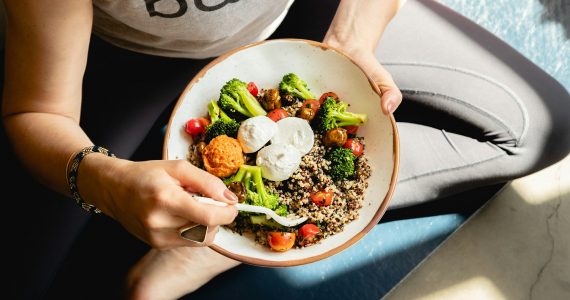Gut health is about more than just digestion. It is the balance and function of the trillions of bacteria living in your digestive tract. When these microbes are in sync, you feel the difference. Your body digests food better, absorbs more nutrients, and even fights off sickness faster.
Boosting gut health means feeding the good bacteria and cutting out what harms them. It is about choosing foods that help your gut work the way it should. Think fiber-packed plants, fermented goodies, and fewer processed snacks.
Fiber First
Gut health starts with fiber. It feeds your gut’s good bacteria and keeps things moving smoothly. Most people barely hit half the recommended daily intake. Women need around 25 grams, men need 30. That means more plants, fewer packaged foods.

That is a real gut support!
Prebiotics
Prebiotics are fibers that your body can’t digest, but your gut bacteria love them. They act like fertilizer, helping healthy microbes grow strong. This means more good bacteria, fewer troublemakers.
You will find prebiotics in garlic, onions, leeks, lentils, chickpeas, oats, and almonds. Add these to your meals often. The more variety, the better your microbial army.
Mix Up Your Plants
Aim to eat 30 different plant-based foods each week. That sounds like a lot, but it is not just salad. It includes fruits, grains, herbs, seeds, and nuts. Each one adds different nutrients and supports different bacteria.
More plant diversity leads to more microbial diversity, which is a big win for your gut. A wide range of microbes means better digestion, stronger immunity, and less inflammation.
Say No to Processed Foods!
Your gut bacteria hate ultra-processed foods, such as deli meats, sugary cereals, packaged snacks, and ready-made meals. These foods often contain additives, emulsifiers, and artificial sweeteners that mess with your gut microbiome.
Swap those for real, whole foods. Cook simple meals. Choose snacks that grow from the ground. Your gut will notice, and so will your mood and energy levels.
Fermented Foods
Fermented foods are rich in live bacteria that help restore balance in your gut. Yogurt, kefir, kimchi, and sauerkraut are backed by science. They bring in good bacteria like Lactobacillus and Bifidobacterium.
Eat them regularly to keep your gut thriving. Just check the label to make sure they contain live cultures. Heat-treated products won’t offer the same benefit.

Polyphenols also fight inflammation and support gut lining health. So yes, that square of dark chocolate might actually help your gut.
However, water doesn’t get enough credit. It helps break down food, move it along your gut, and soften stool. But that is not all. Hydration may even boost the variety of bacteria in your gut.
If your gut feels off, drink more water. It is the cheapest, easiest fix. Pair it with fiber, and you have a powerhouse combo.
Lifestyle Counts
Food is huge, but it is not everything. Regular exercise keeps your gut bacteria diverse. Stress shrinks that diversity, so it helps to unplug and breathe more often. Sleep also matters. Poor sleep can throw your gut out of whack.
So, eat well, move more, chill out, and get some sleep. Your gut listens to all of it.




